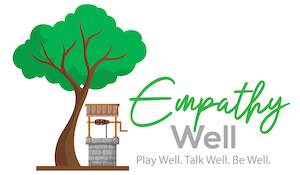CCPT: What To Do When...
Online & Live Training
Registration Closed
The person centered philosophy that serves as the basis for child centered play therapy (CCPT) is marked by trust in the innate tendency present in all individuals for growth-enhancing self-structure, emotions, and behaviors. The child is capable of determining the direction for therapeutic change and the effective CCPT therapist provides self and environment to facilitate the child’s active and innate processes for enhancement. When relationship and child-directivity are the central components of therapy, situations arise that present clear challenges to the therapist. Some examples may include a child who does not play, asks many questions, insists on therapist self-disclosure, wants to play competitive games, persists in wanting therapist to lead, does not seem to be working on presenting issues, acts aggressively, and many others. A therapist may find it difficult to respond to these situations in a way that allows the child to lead yet is therapeutically effective. We will look at specific situations in CCPT that are difficult to respond to and discuss best and effective practices. Note: This workshop is for participants who have training and experience in basic Child-Centered Play Therapy.
Earn 6 Non-Contact CEs!
Days/Times:
- Monday, October 14, 9:00 AM - 11:00 AM CDT
- Monday, November 18, 9:00 AM - 11:00 AM CST
- Monday, December 16, 9:00 AM - 11:00 AM CST
Learning Objectives:
- Participants will be able to respond to progressing the child to the playroom, staying in the playroom, and leaving the playroom in child-centered play therapy.
- Participants will be able to respond to a child when they do not play in the play therapy room.
- Participants will be able to respond when a child asks challenging questions or engages in competitive play.
- Participants will be able to apply the three therapist attitudinal conditions in CCPT to respond to difficult situations.
- Participants will be able to identify in what situations they should genuinely respond to children with self-disclosure.
 Speaker:
Speaker:
Dee C. Ray, Ph.D., LPC-S, NCC, RPT-S is co-owner of the counseling practice, EmpathyWell, in Highland Village, TX where she facilitates play therapy, training, consultation, and supervision. Dr. Ray is Regents Emerita Professor in the Counseling Program and Director Emerita of the Center for Play Therapy at the University of North Texas. Dr. Ray has published over 150 articles, chapters, and books in the field of play therapy, specializing in research specifically examining the process and effects of Child Centered Play Therapy. Dr. Ray is author of Playful Education: Using Play Therapy Strategies to Elevate Your Classroom, A Therapist’s Guide to Development: The Extraordinarily Normal Years, Advanced Play Therapy: Essential Conditions, Knowledge, and Skills for Child Practice, and co-author of Multicultural Play Therapy and Group Play Therapy. She is a founding board member and past president of the Association for Child and Adolescent Counseling, as well as past board chair of the Association for Play Therapy. She is an American Counseling Association Fellow, and two-time recipient of the Association for Play Therapy Outstanding Research Award, among many others.
Fees, CEs, and Participation
This 3-day online workshop is only $150 per participant. Upon completion of the 3-day workshop and training evaluation, participants will receive 6 Non-Contact CE credits. We are an Approved APT Provider: 22-674.
Participants must be present and engaged with camera on in order to receive the CE credits.
Complaints Review & Resolutions: Individuals may contact EmpathyWell, PLLC at info@empathywell.com or (972) 498-1307 if they would like to express a concern about a continuing education program provided by EmpathyWell, PLLC. We will consider all complaints, make any necessary decisions or changes, and respond within 5-10 business days.
Confidentiality and Security of Participant Information: EmpathyWell, PLLC will keep all participant information received during registration confidential and secure including participant name, phone number, email address, address, education level, and license/certification information. During any live webinar or in-person program, EmpathyWell, PLLC will ask for verbal consent prior to taking photos involving participants or sharing photos including participant images on marketing materials or social media.
Cancellation/Refund Policy
Registration is final and a refund will not be processed. EmpathyWell reserves the right to cancel this web series in the event of unforeseen circumstances. If such occurs, EmpathyWell will attempt to notify registrants prior to the workshop and refund all registration, workshop, and fees. In all instances, the liability of EmpathyWell is limited to refunding such fees.
Registration Closed
